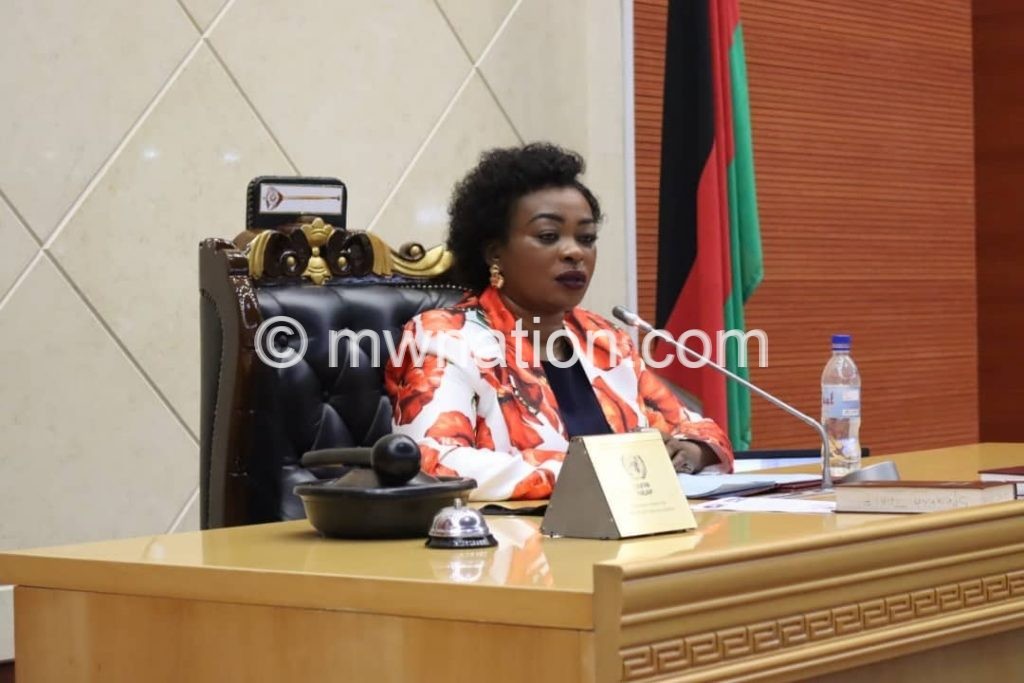The Malawi National Human Development Report 2021 has exposed inequalities among the country’s districts human development.
The report’s lead researcher has attributed the situation to differences in governance structures of local councils.
Komatsubara: Report provides Malawi with an opportunity to focus its development
The Human Development Index (HDI) report is usually released every five years since 1994 and measures three key dimensions of human development, namely long and health life as measured by life expectancy, access to education measured by expected years of schooling and decent standard of living which is assessed through gross income per capita adjusted for the price level such as inflation rate.
Speaking during the launch of the report in Lilongwe yesterday, lead researcher Professor Charles Jumbe from the Centre for Independent Evaluations said the latest report is unique in that it has been able to compute HDIs for each of the country’s three regions, cities and districts.
He said the approach provides duty-bearers with a clear picture on where to focus more energy.
The report says while Malawi has improved its HDI value from 1990 (0.333) to 2019 (0.483), the country remains within the low human development category below the human development threshold of 0.513 and below the sub-Saharan Africa average of 0.547.
The report also exposes slight disparities in HDI across the three regions of the country as well as districts.
Reads the report: “The Northern Region leads with an HDI value of 0.496 followed by the Central Region with an HDI value of 0.495 and the Southern Region at the bottom with an HDI value of 0.490.
“Across the major cities of Malawi, only Zomba City falls within the medium HDI category with HDI of 0.545, while the rest of the cities fall within the low HDI category.”
The country’s 28 districts fall in the low HDI category, but the report singles out five districts as doing better that others. The star performers are Blantyre, Neno, Mwanza, Chitipa and Rumphi.
On the other hand, the bottom districts with the least HDI values are Dowa,Mulanje, Nsanje, Mangochi and Machinga.
Jumbe said the ratings were based on performance in three dimensions of long and health life, access to education and decent standard of living. He said the quality of services available in a particular district influences the scores.
The report finds that inadequate efforts at fiscal decentralisation and limited financial resources are among the major challenges that affect the performance of district councils in terms of efficient and quality service delivery.
In his presentation, the researcher said: “Most district councils have a weak capacity to mobilise their own resources. About 71-72 percent of the funding to councils comes from central government transfers, which is also affected by the country’s limited fiscal space and austerity measures.
The balance of 28-29 percent comes from own locally generated revenues. Both central government transfers and local revenue sources fail to meet district councils’ annual targets.”
In an interview Jumbe stressed that with low funding facing most councils there is need for councils to be innovative and generate more income to better their HDI.
United Nations Development Programme resident representative Shigeki Komatsubara said the report provides Malawi with an opportunity to focus its development.
He said the questions raised on why some districts are doing better than others should help to shape development programs
Minister of Finance and Economic Affairs Sosten Gwengwe said it was encouraging that in as much as Malawi is in the low HDI category the government is implementing so many programmes in line with Malawi 2063 such that the country is likely to improve its standing.
Compared to four other countries, namely Zambia, Tanzania, Mozambique and Zimbabwe, the report shows that Malawi is only ahead of Mozambique in terms of HDI standing.
The post Development report exposes inequalities appeared first on The Nation Online.
 Moni Malawi
Moni Malawi 

